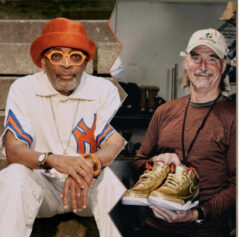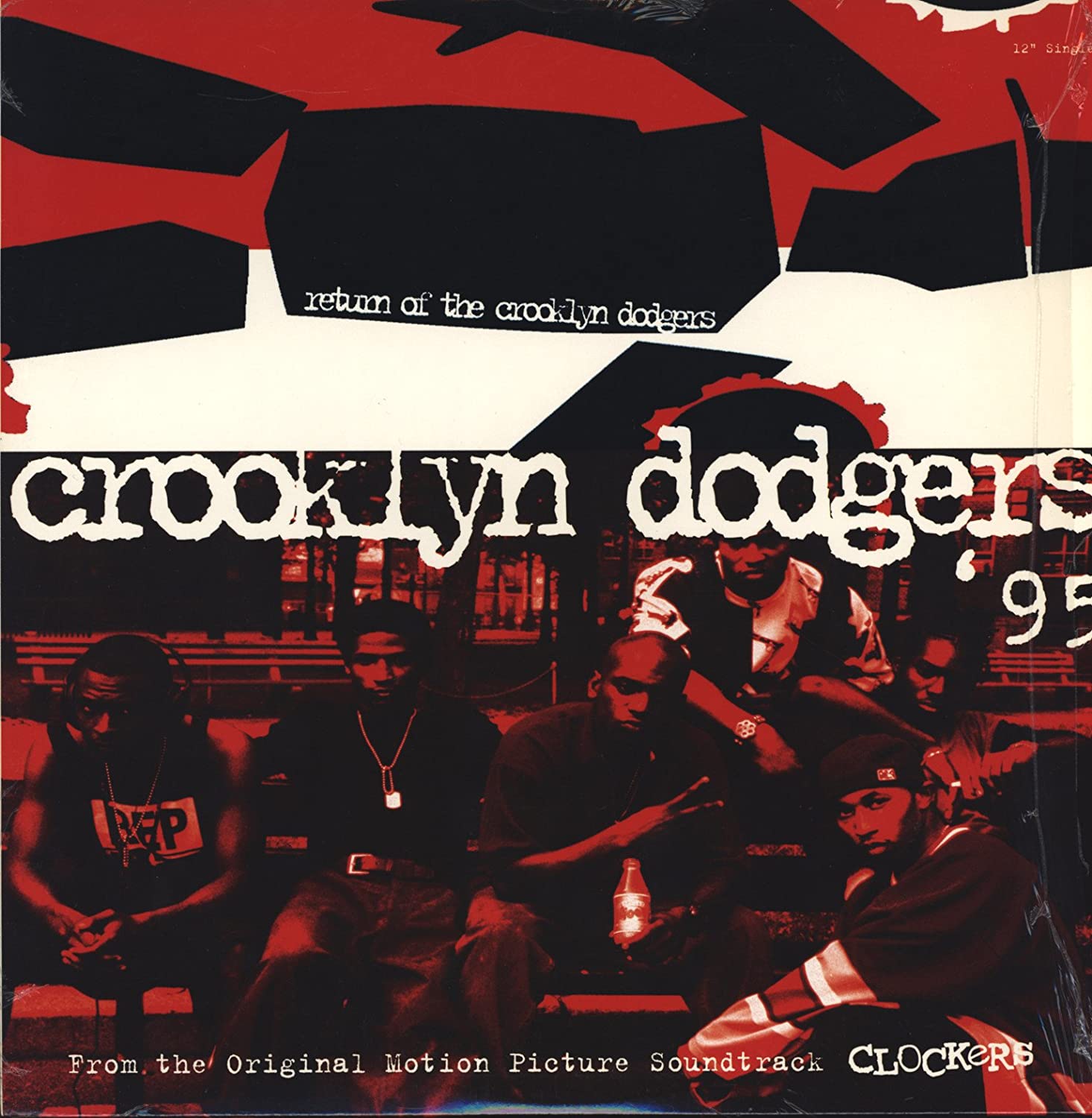At the 16th annual D.C. Hip-Hop Theater Festival, which runs through this Saturday, July 23rd, Craig Grant, the poet, actor, playwright and screenwriter known as muMs, stole the show with his one-man play, A Sucka Emcee, at the Kennedy Center last week.
He seamlessly rhymed, talked, and joked in his one-man show, alongside a deejay who interspersed Hip Hop songs to complement the narrative and poetry.
muMs has been on the theater scene, on the poetry circuit and as an actor in the HBO hit series, Oz. Hes appeared in Spike Lee movies, and behind the scenes with his short film, Morning Breath, which was well-received at the Sundance Film Festival a few years ago.
And for hardcore fans of Chappelle Show, his portrayal of Lysol in the classic skit, The Mad Real World, is legendary.
Hell also appear in an episode of Luke Cage this fall on Netflix. Throughout it all, he has both maintained his connection to Hip-Hop and his authentic voice.
After his phenomenal performance at the Kennedy Center, muMs sat down with The Shadow League to talk about the play, his inspirations, his growth, and where hes headed as an artist.
***
The Shadow League: The play, delivery, the music as part of the storyline was all brilliant. Its engaging from beginning to end. What was your process and how did you come to this play?
muMs: I hadn’t performed in a while, so I started performing again. I wrote 5 or 6 new poems and started hitting the stage and I had a guitarist and I would just go. There was a director that saw me performing these poems a few times. She approached me and said I think you can formulate that into a one-man show. The way I was doing it, I was linking the poems together so that people wouldn’t clap after each poem. Out of those six poems I wrote, only one made it into the one-man show. I wrote it in about two or three months. I was dealing with my mother and her Alzheimers at the time.
TSL: The storytelling is seamless in telling your personal story as a narrative, inserting poems that also tell parts of your story and having Hip Hop as the subtext. Was that intentional?
muMs: I wanted to do a Hip Hop story. I was growing up in the Bronx at the same time I was going through puberty and Hip Hop spoke for me. When I say I couldn’t talk before Hip Hop, I really couldn’t. I couldn’t express myself. There was some type of freedom of expression that came about when Hip Hop came out. I was very shy. Shy like, hide behind your mother’s legs shy.
TSL: Do you remember the first time being on stage? How did you flip that shy feeling?
muMs: I forced it. I was always put in a situation where I had to. I loved rap and I took to it. That cipher became the stage eventually. The first time I ever performed on the stage it was like a little bird jumping off the tree branch. I was on a date with this girl and the thing was I wanted to impress her, so I signed up for the open mic and got up and I was horrible. But I kept doing it.
TSL: You’ve done this show with Rich Medina as the deejay. You said at first you’ve done it with a guy playing a guitar?
muMs: When I first started, it wasn’t the full one-man show. It was the five or six poems with me improvising in the middle. When working with Rich, I think the only music we had was the Nat King Cole piece and Rakim, My Melody. Rich took it and went with it and included music throughout. Once we invited Rich into the room, the piece became 3-dimensional.
Like the Cold Crush Brothersin the part when I talk about when I first heard Hip Hop I say: “I heard hip hop for the first time, the resting face forms defense walking past the guys drinking liquor leaning on the fence, listening to their cassette tape on the box on the broken stoop, the crackling sounds of someone talking fast to a hype crowd over a break beat on a loop.”
TSL: You are telling very personal stories. To me, its like your life is a metaphor for Hip Hop.
muMs: Yeah, a lot of successes and failures. This culture came about at the same time I was coming into my manhood. I was going through puberty. I was really trying to figure out things–in that natural search pattern of finding something to adhere to. There was a lot of turmoil going through my mother’s family house with my brother and my father and Hip Hop was a way for me to tune all of that out.
The day I got Rappers Delight, I remember that better than some of the faces that are in my extended family. It was very important to me. It was a big moment. I remember where I was standing in the apartment when it was given to me. For me to go to the record store and buy World Class Wrecking Cru was huge. Or listen to Funky Four Plus One or the Crash Crew or the Fantastic Five. Some kids gravitated towards comic books or baseball cards, for me it was Hip Hop. It shaped the way that I see the world.
A Jewish friend who loves Hip Hop asked me why do rappers brag so much and I’m like that’s just a building block of the culture, when you have nothing you have to build up the idea of having something in your brain.
TSL: You speak honestly about what Alzheimers looks like in the play.
muMs: Yeah, Alzheimers is when your body forgets how to function. My mother is in a nursing home now and she can barely put a sentence together. Shes still eating and that’s always a good thing. She knows how to say my name, I’m not sure if she recognizes me anymore.
TSL: What came out of it for you?
muMs: The solo show came out of it. My love for writing and performing came back again. A broader idea of who I am as a writer, as opposed to just an actor or a poet.
TSL: What do you think about being as close to the Hip Hop scene as you were, but not being a rapper –not having an album. You talked about giving Puffy your demo when you had a rap duo.
muMs: That was the route everyone was taking. It was a success route. I knew a lot of people in the industry and people were getting record deals–millions of dollars to make videos and people were making money. It just seemed like the route to go.
I remember back then I was in the music offices, trying to get in. I had opportunities. In the part of the play where I’m like, Hold on to your authenticity, I didn’t realize that’s what I was doing. I had offers to be on the soundtrack of a movie and they would show me the movie and I would be like I don’t like the movie. Theyd be like, Who the hell are you?? Id be like, I’m Mums.
When I made the decision to just figure out how to perform instead of getting a deal, it didn’t matter. Getting a deal didn’t matter to me anymore. I had a job, was making good money, had my car, had my little apartment. This was the early 90s. I was doing okay for a kid in his 20s. I stayed at the poetry spot and started to get better. I couldn’t tell you why I kept performing without any place to go with it other than I loved it. I got better and didn’t even realize I was getting better. Then a director approached me six years later.
(Photo Credit: Getty Images)
TSL: Talk about that moment in time at the Nuyorican caf.
muMs: The scene was incredible, it was the backpacker set. I was at the Nuyorican and the Brooklyn Moon caf a lot. There were a lot of other venues that people were checking out. Talib and Mos Def had a venue and I would play there. Down in Philly there was another set. I got to know The Roots crew through that poetry scene. We were all doing it to do it. There was no switchover from rapper to emcee to poet–fame in that scene was enough. For people to be like Muuuums! when I came in, I felt like Norm from Cheers.
TSL: In the 90s, poetry and Hip Hop were at its peak. What do you think prompted all this art to happen at the same time?
muMs: It was a reaction to gangsta rap, I think. In Hip Hop, we had major transitions from the Native Tongues to Stop the Violence, Professor Griff and Public Enemy and then all of a sudden it was Boyz in the Hood and Menace II Society. I was like I don’t do that. I am from the Bronx, lets not get it twisted. If I have to defend myself I will. But I’m not actively promoting thug life. That wasn’t my thing. I’m not knocking it.
Its sad because I remember seeing all of those happy go lucky rap groups mean mugging in the camera in their videos. I felt like us being on the poetry scene was a clapback to that. Women could do it without having to be Lil Kim, talk all grimy and dress crazy. It was competitive even though we would pretend it wasn’t. It was a competition of intellect. It wasn’t a competition of dick size.
TSL: How do you do it, stay on stage by yourself, memorize an hours worth of a one-man show? Its amazing.
muMs: Its memorized. Its a play, its not a performance. It took awhile to write it and get it tight and get all the excess out. There are the scenes cut out that would make it a two-hour show. Once the writing was tight, I had to take the writing hat off and put on the acting hat and then rehearse it and study it as if I hadn’t written it. I couldn’t just run off and improvise. I wrote it in such a way that it is a poem and it needs to be done a certain way with a certain cadence and the verbal breaks that are pertinent to the storytelling.
TSL: How do you see the arts scene now and yourself in it?
muMs: I like the form. I want to expand on the form. For me it was really getting back to my poetry and creating new work and really getting back to that form. I got a new piece I’m workshopping now called Beauteous and I’m workshopping it in the lab with some actors. In September, I’m off to Norway for their Hip Hop theater festival and creating something new out there. I love to use that platform to create international work.
TSL: How do you feel about where you are as an artist now?
muMs: I feel good, but you know as an artist there is always room to grow. Sucker Emcee is the closing of a chapter and opening of another. Its closing the chapter of my youth and acknowledging where I came from and opening of another chapter where I can go with this art form and my skill set outside of the rap world and outside of the music industry. With the success of Hamilton, that’s opened up a lot of doors for Hip Hop based artists, especially within the theater community. My goal in telling stories is to tell moving, forward thinking stories.




